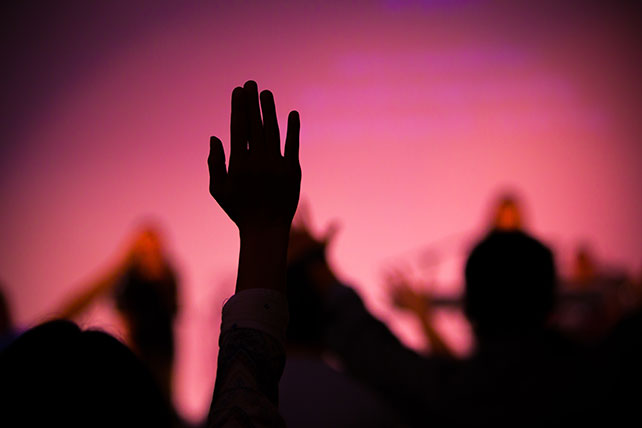It’s captivating to read through the Psalms and see the variety of ways in which David worshipped. When we pause to ask ourselves what we are doing during our worship times today, we are often faced with several questions. How do we worship? What are we able to do and still be reverent before the Lord? What is God’s desire for our worship? Does God give us the right to pick and choose how we worship? The Psalms have given us nine different postures of worship: heart expressions, not actual postures. These expressions stem from David’s desire to worship the Lord wholeheartedly and without reservation. Oddly enough, these postures of worship are not foreign to us, but we fail to practice them in our corporate worship for one reason or another.
Listed below are the nine expressions of worship that we will focus on in this article. They can be broken down further into three physical expressions.
Nine Postures of Worship
1 – 3: The Spoken Voice
- Speaking – Psalm 34:1 says, “I will extol the Lord at all times; his praise will always be on my lips.”
- 2. Shouting – Psalm 27:6 says, “Then my head will be exalted above the enemies who surround me; at his tabernacle will I sacrifice with shouts of joy; I will sing and make music to the Lord.”
- 3. Singing – Psalm 47:6 says, “Sing praises to God, sing praises to our King, sing praises.”
4 – 6: Our Physical Posture
- Bowing – Psalm 95:6 says, “Come let us bow down in worship, let us kneel before the Lord our Maker.”
- 5. Standing – Psalm 119:120 says, “My flesh trembles in fear of you; I stand in awe of your laws.”
- 6. Dancing – Psalm 149:3 says, “Let them praise his name with dancing and make music to him with tambourine and harp.”
Our Hands
- Playing Instruments – Psalm 33:2, 3 says, “Praise the Lord with the harp; make music to him on the ten stringed lyre. Sing to him a new song; play skillfully, and shout for joy.”
- 8. Clapping – Psalm 47:1 says, “Clap your hands, all you nations; shout to God with cries of joy.”
- 9. Lifting Hands – Psalm 63:4 says, “I will praise you as long as I live, and in your name I will lift up my hands.”
None of these postures of worship are foreign to us. They may be foreign to our present worship experiences, but not to our culture. When there is a wedding and the bridal march begins, what do people do without thinking twice? They stand in honor of the bride and groom on this special day. When a man asks a woman to marry him, he gets on his knee to propose to her. Why? Because he wants to show her that this is an important event and that she is being honored as someone very special.

